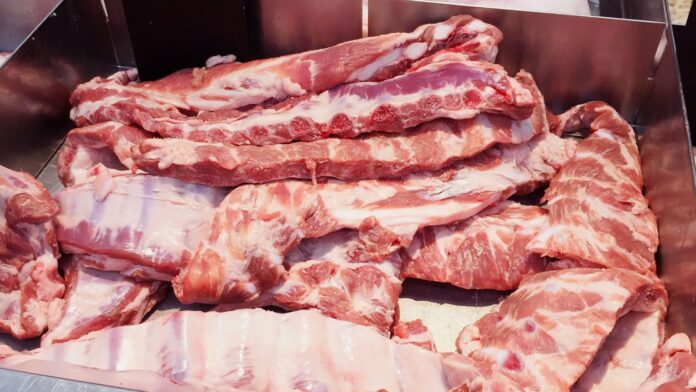-
President Rodrigo Duterte has signed an executive order temporarily reducing import duties on fresh, chilled, or frozen swine meat for one year
-
Most-favored nation (MFN) tariff rate on pork imports within the minimum access volume (MAV) is reduced from the current 30% to 5% for the first three months and to 10% for the fourth to 12th month
-
Pork imports outside the MAV will be slapped a tariff of 15% for the next three months and 20% for the succeeding nine months from the current 40%
-
EO 128 covers imported fresh, chilled, or frozen swine meat for consumption entered into or withdrawn from warehouses in the Philippines
President Rodrigo Duterte has signed an executive order temporarily reducing import duties on fresh, chilled, or frozen swine meat for one year to address the African Swine Fever’s (ASF) impact on pork meat supply and price in the Philippines.
EO 128, signed on April 7, reduces the most-favored nation (MFN) tariff rate on pork imports within the minimum access volume (MAV) from the current 30% to 5% for the first three months upon effectivity of the order, and to 10% for the fourth to 12th month.
Pork imports outside the MAV will be slapped a lower tariff of 15% for the next three months and 20% for the succeeding nine months from the current 40%.
Covered by the EO are imported fresh, chilled, or frozen swine meat for consumption which are entered into or withdrawn from warehouses in the Philippines.
According to EO 128, “There is an urgent need to temporarily reduce the Most Favored Nation tariff rates on fresh, chilled or frozen meat of swine to address the existing pork supply shortage, stabilize prices of pork meat, and minimize inflation rates.”
It noted how the ASF has damaged the domestic swine industry and led to soaring prices and plummeting supply of pork meat, and that “it will take some time for the domestic swine industry to fully recover and attain sufficient local pork production.”
EO 128 takes effect immediately once published in the Official Gazette or in a newspaper of general circulation.
Earlier, Duterte also recommended increasing the MAV for pork imports by 350,000 metric tons (MT) in addition to the current 54,210 MT MAV for this year, also to augment the supply of pork and stabilize increasing prices.
READ: Duterte seeks increase in 2021 pork import MAV
The Department of Agriculture (DA) last February formally requested raising the MAV for pork imports to 400,00 MT.
The MAV refers to the volume of quantity of a specific agricultural commodity that may be imported with a lower tariff.
Last March 15, senators adopted Senator Francis Pangilinan’s Senate Resolution No. 676, which urges the DA to “recommend to the President to declare a state of national calamity” due to the “severe impact” of the ASF on the hog industry.
READ: Cold chain group sees logistics challenges with DA pork import plan
The Cold Chain Association of the Philippines, meanwhile, said that while importing 400,00 MT of pork is “per se normal,” potential logistics problems could ensue if the 400,000 MT “materialize over a short period of time,” and suggested that there has to be a “calibrated response” to the supply issue.
ASF, whose first outbreak in the country was recorded in 2019, has disrupted the operations of hog growers in Luzon, prompting the need for supply to be shipped in from Visayas and Mindanao.
About 95% of pork supply in the Philippines is locally sourced, and while the ASF virus does not pose any health risks to humans, there is no known vaccine to prevent it from spreading to the local livestock and destroying the industry.
The Philippine government earlier placed a 60-day price cap on pork and chicken products in Metro Manila to contain rising prices.





